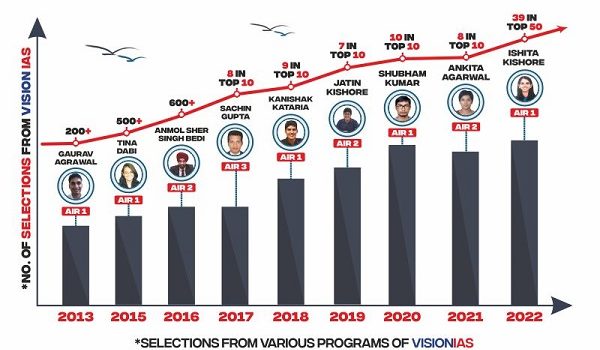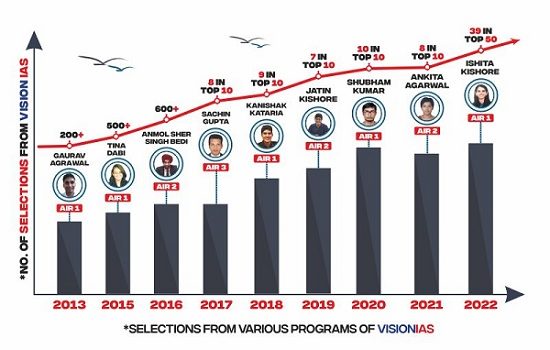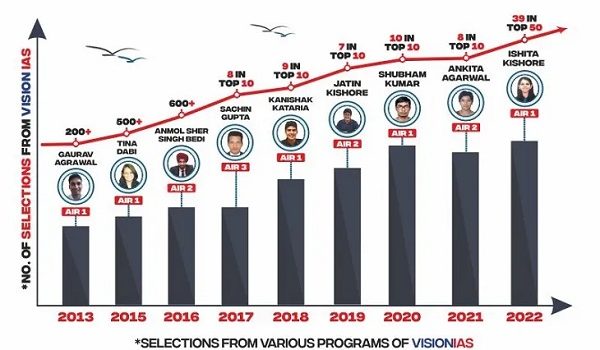Mastering current affairs is a crucial aspect of UPSC Civil Services Examination preparation.
As a significant portion of the questions are influenced by current events in all stages of the exam, staying informed is not just essential—it’s a game-changer. This article presents a roadmap for aspirants, helping them navigate the realm of current affairs effectively and excel in their pursuit of qualifying Civil Services Examination.
Q: Why are current affairs important in the preparation of Civil Services Examination?
A: Current affairs form the cornerstone of the UPSC Civil Services Examination, permeating all its phases – Prelims, Mains, and the Interview. They are crucial because they help aspirants understand contemporary issues, government policies, and other events of national and international importance that often form the core of questions asked by UPSC.
Additionally, current affairs provide a real-world context for most of the static portions of the syllabus, making it easier to comprehend and remember.
Q: What are the primary sources from where exam-relevant information can be read?
A: The primary sources for current affairs include-
- Newspapers like ‘The Hindu,’ and ‘The Indian Express,’ etc.
- Magazines like ‘Yojana,’ ‘Kurukshetra,’ and ‘EPW’,
- Government websites like PIB, and dedicated websites of respective Ministries, and
- Official government documents like Economic Survey, Union Budget etc.
As the aspirants begin their preparation, any reputed newspaper or magazine can serve as a good starting point.
Q: How can one effectively cover these vast sources?
A: To avoid being overwhelmed with the vastness of sources and information, one can adopt a streamlined approach:
- Understanding the syllabus and nature of the Previous Year Questions (PYQs): This groundwork will give you a clear roadmap for what topics to focus on and how to approach them effectively, ensuring your preparation is closely aligned with the exam’s requirements.
- Regular Notes Making: Create concise notes while reading newspapers and magazines. Focus on key facts, figures, and government schemes. These notes will be invaluable during revision.
- Current Affairs Magazines: Subscribing to a good current affairs magazine. These magazines provide curated content that’s relevant to the exam and save you the trouble of referring to multiple sources.
- Why is developing the habit of newspaper reading given special importance in exam preparation?
A: Reading newspapers as a habit helps you in several ways:
- Staying in the Know: Newspapers keep you in the loop about what’s happening worldwide, giving you an edge in understanding the dynamic nature of the exam.
- Brain Boost: It’s like a mental gym. Reading news enhances your memory, making it easier to recall crucial facts during the exam.
- Sharpening Skills: Dive into newspapers, and you’ll sharpen your critical analysis, develop diverse perspectives, and reading, and writing skills. These skills generally translate into higher marks.
Q: Should aspirants read newspapers Online or Offline for UPSC Preparation?
A: Deciding how to read newspapers for UPSC preparation comes down to what suits you best.
This choice can be based on what feels most comfortable and helps you understand and remember the content better during revision.
The key is to strike an optimum balance. The aspirant can go all print, all online, or a mix of both to match their learning style and preparation needs.
- How can the aspirant best utilize the newspaper? Is all the information published in newspapers relevant for the aspirant?
A: To maximize the newspaper’s utility in UPSC prep:
- Start Simple: Begin with basic familiarity, don’t invest too much time initially (about 1 hour would be optimum).
- Connect the Dots: Gradually link newspaper information with your static syllabus.
- Deepen Understanding: As you get comfortable, use it to deepen your knowledge and complement your preparation.
Not everything published in the newspaper is relevant for the aspirant. S/he should focus on headlines and subheadings to quickly identify important news articles and their associated topics. Prioritize articles that are directly related to the UPSC syllabus.
Q: How can VisionIAS resources help aspirants in their Current Affairs Preparation?
A: VisionIAS offers a range of resources tailored to bolster your current affairs preparation:
- News Today: This daily news analysis source provides concise and exam-oriented summaries of current events, ensuring you stay well-informed.
- Monthly Magazine: VisionIAS’ monthly magazine is a comprehensive compilation of current affairs, helping you delve deeper into important topics while offering a consolidated view of the month’s developments.
- Weekly Focus: These focused materials allow you to target specific issues and themes, ensuring you cover critical topics in detail.
- PT 365 and Mains 365: These resources offer a year-round collation of current affairs, making it easier to revise before the respective examinations.
- Other Documents: VisionIAS also provides valuable resources like Government Schemes in News, Economic Survey Summary, and Union Budget Summary etc. for further supplementing the preparation.
Q: How should the aspirant approach the current topics and information while reading the newspaper and other sources?
A: Approach the current affairs topics in totality instead of segregating them into Prelims and Mains.
Along with this, summarize key pointers, facts, and relevant data. This holistic approach ensures a comprehensive understanding, which is vital for both Prelims and Mains.
Q: Despite regular reading, students often forget. How can this be overcome?
A: The key to retaining current affairs is an effective revision plan. The following principles can be followed to create it:
- Integration of Static and Current Affairs: Relate current affairs to static portions of the syllabus. For instance, if you’re reading about a government scheme, connect it to relevant subjects like economics or governance.
- Regular Revisions: Schedule periodic revisions of your notes. This can be weekly, monthly, or as per your schedule. Regular revision ensures that the information stays fresh in your memory. The PT 365 and Mains 365 documents can be effectively used for revision.
Q: Any other exercise through which revision can be reinforced?
A: Revision can also be reinforced with tests and discussions. Join a test series that includes current affairs questions or participate in group discussions on current affairs topics. This interactive approach enhances both comprehension and retention.
Q: How should students manage their schedule to manage Current Affairs effectively?
A: Managing one’s schedule is crucial. The following ideas can be kept in mind while designing it:
- Time Management: Allocate a specific time slot daily for current affairs reading and note-making. Consistency is key.
- Syllabus Prioritization: Prioritize current affairs topics based on their relevance to the syllabus and the weightage they carry in the exam.
- Balance: Maintain a balance between reading newspapers, and magazines, and revising notes. The aspirants should not overload themselves with information; focus on quality over quantity.
- Self-Assessment: Aspirants should periodically evaluate their progress. Are they retaining information? Are they performing well in practice tests? And adjust their schedule accordingly.
In the journey towards cracking the UPSC Civil Services Examination, mastering current affairs is non-negotiable. By following a structured approach of regular reading, note-making, and strategic revision, aspirants can conquer the vast sea of current affairs information.
“’The difference between the master and the novice is that a master has failed more times than the novice has tried.”
Remember, it’s not just about staying updated; it’s about transforming that knowledge into a stepping stone towards your dream career in civil services.
Visit us at: http://www.visionias.in/delhi/
Or Call us at: 8468022022, 9019066066




